FGFJ Survey | Attitudes on Japan’s International Cooperation for Infectious Diseases
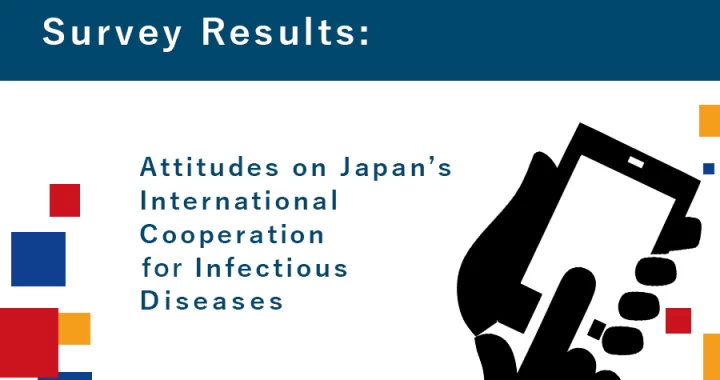
Summary of an online survey conducted by FGFJ on the Japanese general public’s understanding of infectious diseases as well as their awareness of infectious diseases in developing countries and Japan’s international cooperation in the field of healthcare.
WEBINAR | Community-Based Integrated Care for Asia’s Aging Populations
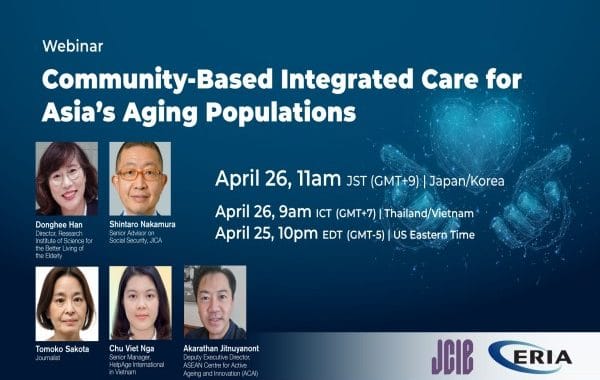
JCIE and the Economic Research Institute for ASEAN and East Asia (ERIA) will co-host a webinar on community-based integrated care.
Japan’s Democracy: Lessons and Reflections
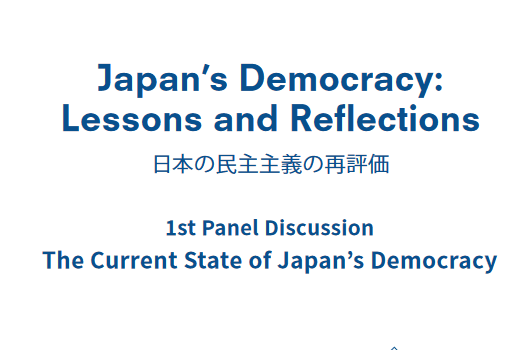
Japan’s Democracy: Lessons and Reflections 2021–2022 As part of our program on Expanding Support for Democratic Governance, JCIE launched a project on “Japan’s Democracy: Lessons and Reflections.” Led by Dr. Harukata Takenaka, Professor at the Graduate Institute for Policy Studies (GRIPS), the project facilitated three discussions among leading Japanese scholars and practitioners to reflect on Japan’s […]
AHWIN Papers No. 3: The Path to Community-Based Integrated Care
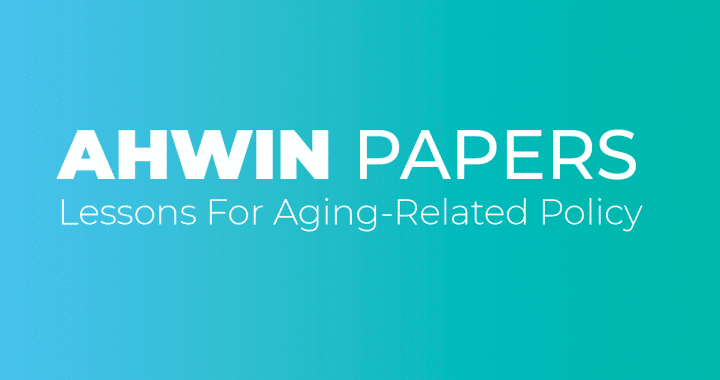
The third publication in the “AHWIN Papers” series covers Japan’s transition to community-based integrated care to address the challenges of its older population.
Japan’s Global Health Strategy in the Post–COVID-19 Era Vol. 14 | Essential Medical Products during a Public Health Emergency of International Concern (PHEIC)
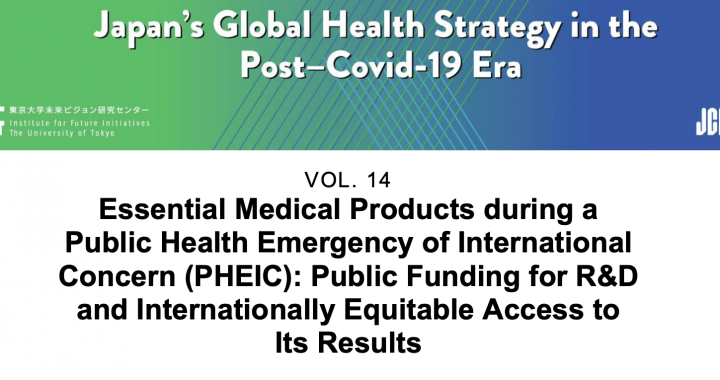
This article considers such questions as why the global disparity in access has occurred, whether international efforts to close those gaps have been successful, and what is needed for a fundamental solution to the problem.
Japan’s Global Health Strategy in the Post–COVID-19 Era Vol. 15 | Financing Mechanisms for Health Security — Challenges and Lessons for the Future
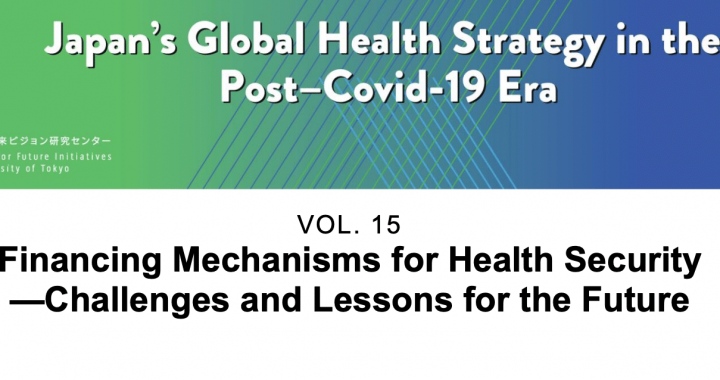
This policy brief discusses contributions to the WHO Contingency Fund for Emergencies since it was established in 2015.
Japan’s Global Health Strategy in the Post–COVID-19 Era Vol. 12 | Can the ACT Accelerator Achieve Truly Fair and Equitable Access to COVID-19 Tools?
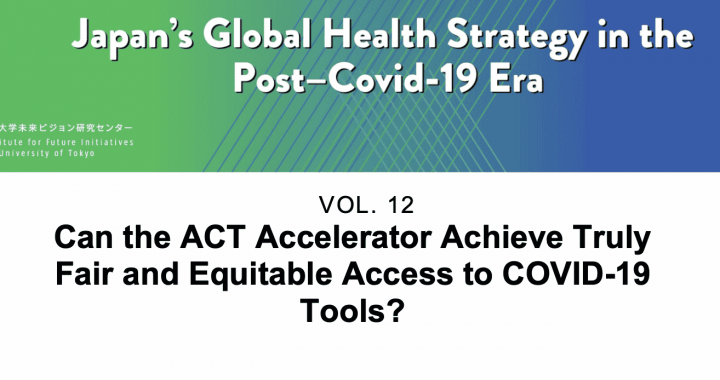
This paper discusses ACT-A as a potential tool to ensure fair and equitable access to healthcare, through inclusive, democratic, and transparent decision making.
Japan’s Global Health Strategy in the Post–COVID-19 Era Vol. 13 | The Significance and Challenges of Public-Private Partnership in Global Health Cooperation
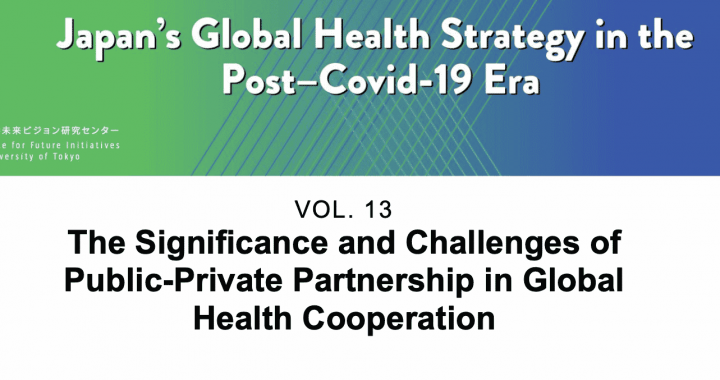
This article examines the significance and challenges of public-private partnership in global health and explores multistakeholder relationships for effective global health cooperation in the post-COVID era.
Japan’s Global Health Strategy in the Post–COVID-19 Era Vol. 10 | Synergies between Universal Health Coverage (UHC) and Health Security
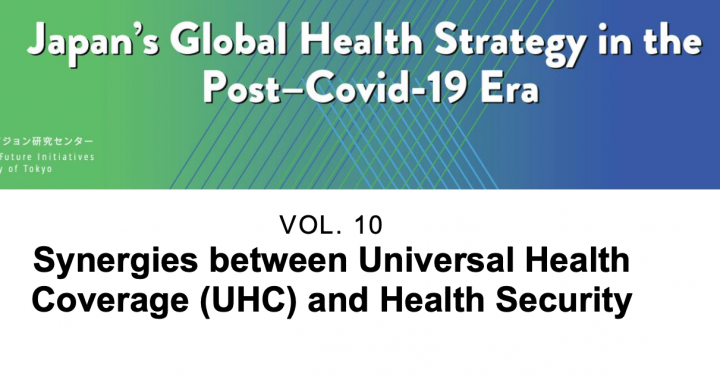
This brief outlines the PPR and health systems that many countries considered to be the gold standard that they should be aiming for, and how they turned out to be completely powerless in the face of this unprecedented pandemic.
Japan’s Global Health Strategy in the Post–COVID-19 Era Vol. 9 | Global Health Administration and Maritime Transport
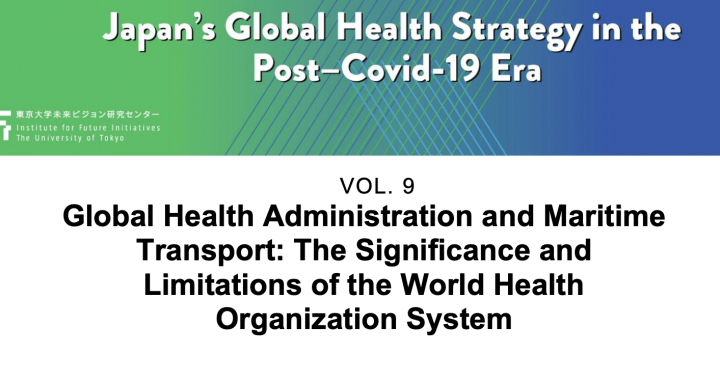
This policy brief examines the significance and limitations of the WHO system in the regulation of maritime transportation and indicates challenges for the future.
